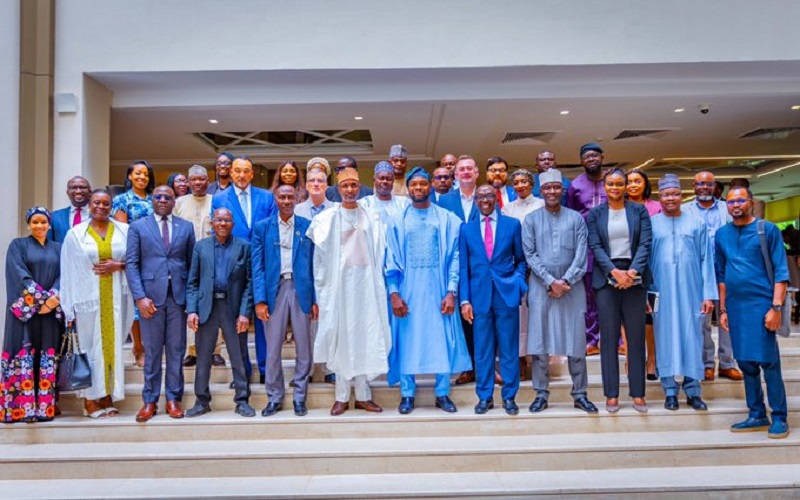In the news:
- FG announced significant progress in discussions with DFIs to create an SPV to expand the nation’s fibre optic network by 90,000km.
- The SPV will manage the expansion project, overseeing its implementation, finances, and operations.
- The project, approved by the Federal Executive Council in May 2024, aims to increase Nigeria’s fibre optic capacity from 35,000km to 125,000km.
The Federal Government on Wednesday disclosed that it had made significant progress in discussions with Development Finance Institutions (DFIs) to establish a Special Purpose Vehicle that will expand the nation’s fibre optic network by 90,000 kilometres.
An SPV is a separate legal entity created to achieve a specific goal or project. In this context, the SPV will manage the fibre optic project, overseeing its implementation, finances, and operations.
“We had an extremely productive conversation with Development Finance Institutions and other stakeholders to identify and outline steps towards setting up the Special Purpose Vehicle (SPV) to build out 90,000km of fibre optic connectivity across Nigeria,” Bosun Tijani, Minister of Communications, Innovation and Digital Economy said on his X (formerly Twitter) page.
The Minister said he was excited about what the Federal Government is set to achieve as it carries through with its commitment to fundamentally improve connectivity across the country and improve the lives of all citizens.
Tijani expressed gratitude to Mr. Wale Edun, Minister of Finance and Coordinating Minister of the Economy, the World Bank, and all other partners including Africa Development Bank Group, Ministry of Finance of Nigeria, International Finance Corporation (IFC), and the Nigerian Communications Commission (NCC) for their support in this process.
Recall that in May 2024, the Minister announced in Abuja that the Federal Executive Council approved the SPV project during its meeting.
The project, he said, would increase Nigeria’s fibre optic cable capacity from 35,000 kilometres to 125,000 km, making it Africa’s third-longest terrestrial fibre optic backbone behind South Africa and Egypt.
Tijani said the ministry has started work to establish an SPV, following models like Nigeria Inter-Bank Settlement System and Nigeria LNG Ltd, aiming for efficient governance and operations in Nigeria’s Public-Private Partnership setups.
“This extensive coverage will enable us to optimise the unique benefit of having eight submarine cables already landed in Nigeria and, therefore, drive uptake of the data capacity that the cables offer, beyond the current usage level of 10%.
“Building on our existing work with the Broadband Alliance, this increased connectivity will help plug the current non-consumption gap by connecting over 200,000 educational, healthcare and social institutions across Nigeria, ensuring that a larger section of our society can be included in the benefits of internet connectivity.”
The Minister added that the project would also help in increasing internet penetration in Nigeria to over 70% and reduce the cost of access to the internet by over 60%.
Through the project, Tijani said Nigeria would achieve the inclusion of at least 50% of the 33 million Nigerians currently excluded from access to the Internet, and it is also expected to deliver up to 1.5% of gross domestic product (GDP) growth per capita, raising GDP from $472.6 billion (2022) to $502 billion over the next four years.

